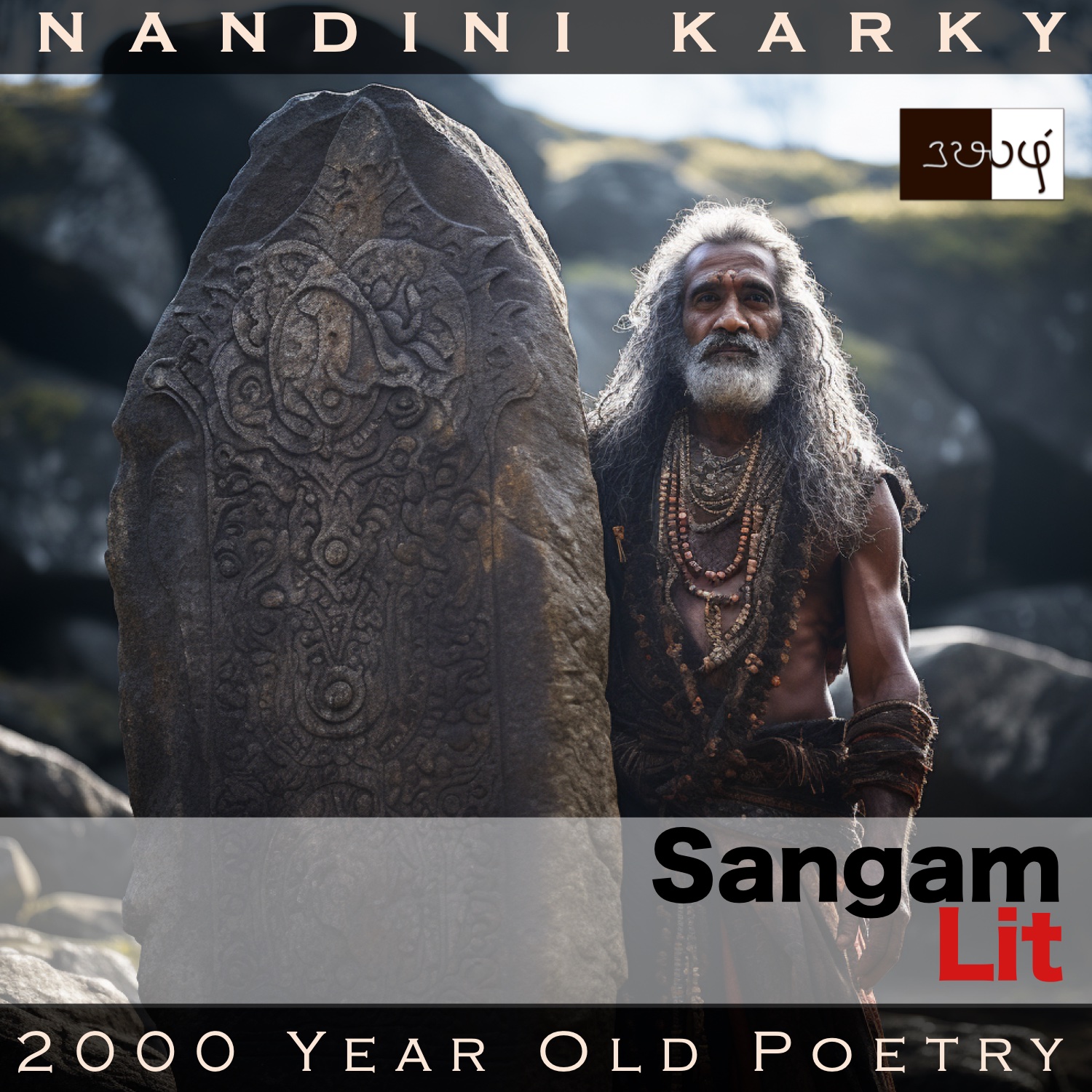Podcast: Play in new window | Download
Subscribe: Apple Podcasts | Spotify | Amazon Music | Android | iHeartRadio | TuneIn | RSS | More
In this episode, we understand the extent of a poet’s regard for his patron, as portrayed in Sangam Literary work, Puranaanooru 222, penned about the Chozha King Koperunchozhan by the poet Poththiyaar. The verse is situated in the category of ‘Pothuviyal Thinai’ or ‘Common Themes’ and brings out the thoughtful personality of this king.

‘அழல் அவிர் வயங்கு இழைப் பொலிந்த மேனி,
நிழலினும் போகா, நின் வெய்யோள் பயந்த
புகழ்சால் புதல்வன் பிறந்த பின் வா’ என,
என் இவண் ஒழித்த அன்பிலாள!
எண்ணாது இருக்குவை அல்லை;
என் இடம் யாது? மற்று இசை வெய்யோயே!
A short song that describes in the poet’s words the situation he found himself in. These words can be translated as follows:
“You said to me, ‘Wearing fire-like, shining jewels on her form, and close to you like a shadow, is the one who loves you. After she gives birth to your son, who will have great fame, come here’, and you banished me from this place, O king without affection! You surely would not have forgotten your words. So, tell me which is my space, O king, you, who covets fame!”
Time to delve deeper. The poet repeats the king’s words rendered unto him in the past asking the poet to leave and return after the poet’s wife, the one who adorns herself with flame-like jewels and follows the poet like a shadow, had given birth to the poet’s son. Let’s rewind to understand the context better. The Chozha king had decided to give up his life, taking up a fast unto death, facing north, rather than fight his own sons. At this time, numerous poets and well-wishers joined him in giving up their life. When this poet arrived there to follow the king, the ruler seems to have asked the poet to leave the place, return to the poet’s wife and come only after she had given birth. The poet describes this action of the king as that of one lacking love, for he forbade the poet to give up his life along with him, but in truth it’s the immense affection that the king had that made him say these words. Now, I have come back, so tell me which is my space, the poet seems to ask the hero stone, standing in place of the king.
While we can appreciate the thoughtfulness of the king to ensure that the poet saw the birth of his son, still how can it be right for a man to abandon his wife, who had just given birth, and also, the young son, who will never know his father’s face, so as to give up his life along with his king? This is shocking to us but such sacrifices have indeed been asked of men, for king, country and religion, across the ages. Such has been our history, and hopefully, humankind will become mature enough to see the faults in such grand conceptions and choose instead to turn their focus on quieter paths of right that would bring joy and peace to their little worlds!




Share your thoughts...